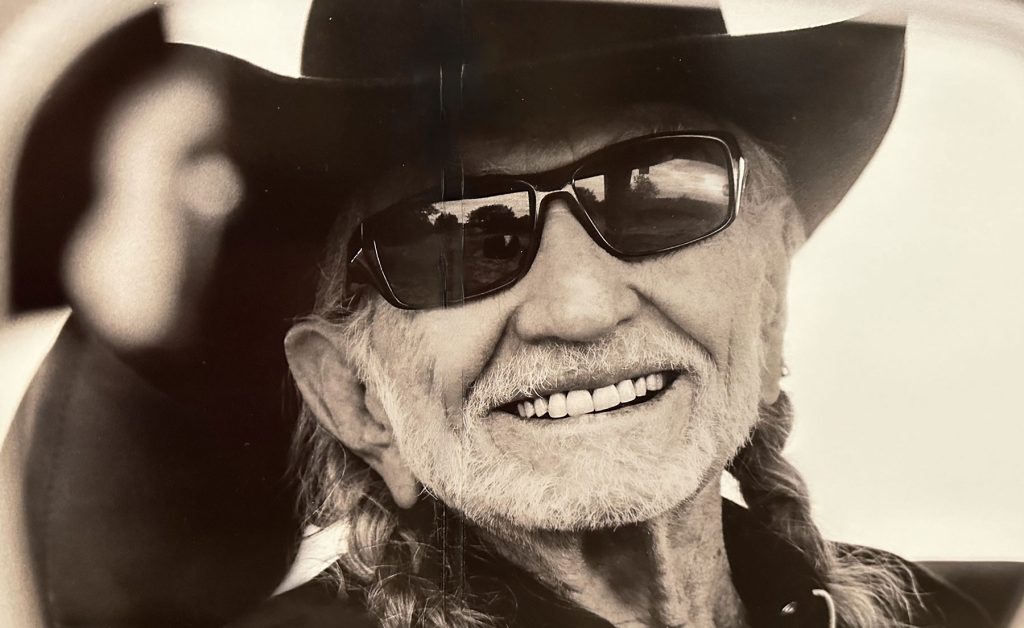
Willie Nelson’s song, “Always on my mind,” was ruined for me shortly after its 1982 release.
By a preacher. For a good reason.
While the song had been recorded a decade earlier by Brenda Lee and then Elvis, it was Willie’s rendering that had radio stations playing it and listeners singing along at this time.
A good sermon is one remembered right after a hearty Sunday dinner. So one remembered four decades later must qualify as a great sermon.
Titled “Deeds as credentials,” by Tom Conley, then pastor of Atlanta’s Northside Drive Baptist Church, was one such sermon at least for me. Even if he took on the beloved Redheaded Stranger and ruined — for me — one of his most popular songs.
Tom quoted Willie’s lyrics he was hearing on the radio: “Maybe I didn’t treat you quite as good as I should have” and “Little things I should have said and done, I just never took the time.”
Shaking his head, Tom mouthed sarcastically, “But – you – were –always -on – my – mind.”
Then, after a perfectly-timed pause and in his signature deep voice, Tom added aloud: “POPPYCOCK.”
He took issue with the idea that love can be so passive — with failed attentiveness wiped away by a shrugging claim of thinking about someone while giving one’s attention to someone or something else.
Love — of both God and others — is more than sentiment, Tom affirmed. It is reflected in actions.
Hence, the sermon title: “Deeds as credentials.” Corresponding actions are evidence of one’s love, he said, using the idiom that “the proof is in the pudding.”
Both love and faith are often misrepresented as existing apart from required corresponding actions.
Much of Americanized Christianity — a likely overreaction of Protestantism —has resulted in a largely do-nothing faith that requires merely lip service as a license to heaven. All that Jesus called his followers to be and do gets treated as optional if not irrelevant in many modern practices of “Christianity.”
Of course, grace is free — or it wouldn’t be grace. But there is a difference in seeking to earn divine favor and reflecting the grace that one has already experienced.
Likewise, love — wherever directed — is to be more than mushy thoughts.
In his book Love Does, Bob Goff writes that, when texting, the world “love” often gets changed (or he hits the wrong key) to “live.” But he has learned to accept it as a lesson rather than a mistake.
“It is a reminder that fully loving and fully living are not only synonymous but the kind of life that Jesus invites us to be part of.”
Paul, himself, advocated for a revealing faith rooted in active love that is patient, kind and not self-serving — among other attributes. Such is described well in 1 Corinthians 13.
The writer of Hebrews (11:6) has chimed in too. “Real faith has corresponding actions.”
Along with the call in 1 John 3:18 to “let us not love with words or tongue but with actions and in truth.”
While one may pick and choose verses to support a claim, Jesus was clear that all laws and prophetic teachings depend (or “hang”) on the two-fold command to love God with all one’s being and one’s inclusively-defined neighbor as oneself.
Where one places his or her faith determines the ways and degrees to which one actively loves. Sadly, many constructs of the Divine — by professing Christians today — are very unlike Jesus.
Never have the words of Harry Emerson Fosdick (1878-1969) seemed more-timely considering what is often seen and heard from fear-driven, self-focused Americanized Christians now.
“It behooves us to take care what kind of God we believe in,” said Fosdick. “Some of the people who do not believe in God at all are more merciful, truth-loving, and just than are some who do.”
True love of God and others cannot be expressed as a passing afterthought — nor in unloving ways. Actions — consistent with one’s professed commitments — are required.
So I’ll keep singing along with Willie whenever his songs are on the radio. But at the end of one of them, I’ll pause for just a moment and then say aloud: “POPPYCOCK.”
John D. Pierce is director of the Jesus Worldview Initiative (jesusworldview.org), part of Belmont University’s Rev. Charlie Curb Center for Faith Leadership.
